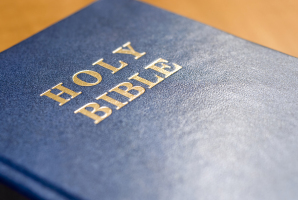Islam-Led Egypt Could Jeopardize Delicate Peace With Israel, Critics Warn
In what observers say is another step away from amicable international relations, Egypt’s Foreign Ministry has advised Israeli pilgrims to halt their annual trip to the tomb of Rabbi Yaakov Abu Hatzira, located in Damanhour, Egypt.
This serves as Egypt's most recent attempt to separate itself from Israel, according to observers. Although the growing tension between the two countries will have political ramifications, the conflict runs deeper. The growing disparity between Egypt and Israel echoes the Arab-Israeli conflict, reportedly dating back to the beginnings of Arab nationalism and the Zionist movement.
With the Muslim Brotherhood expected to control Egypt's newly formed Parliament, critics question if the Arab-Israeli conflict will intensify underneath an Islamic government, or if the Brotherhood will uphold its campaign promises of pragmatism.
On Wednesday, Egypt’s Foreign Ministry reiterated what it had told Egypt two months prior. According to The Associated Press, the Foreign Ministry affirmed that the Israeli pilgrimage would not be “appropriate” due to the country’s current political and security situation.
Jews make an annual pilgrimage to the tomb of Rabbi Hatzira, a leading Moroccan rabbi who was considered a mystic by many Israelis and revered for his pious demeanor. Hatzira was commuting from Morocco to the Holy Land when he fell ill and died in Damanhour in 1897. According to most accounts, his followers attempted to remove his body from Egypt three times, but were unsuccessful due to heavy storms.
The pilgrimage has generated political controversy for the past decade. Every year, political activists stake out at the tomb to protest the pilgrimage, arguing that it represents Egypt’s appeasement with Israel, which is seen by many Egyptians as a former enemy. The two countries have maintained “cold peace,” as a result of the peace treaty signed in 1979.
“Normalization (of relations) with Israel is forced on the people, and the visits too come against the will of the people and despite popular rejection,” said Gamal Heshmat of Egypt’s leading political party, the Muslim Brotherhood, according to The Associated Press.
The Muslim Brotherhood has previously stated that it plans on dissolving the 1979 peace treaty between Egypt and Israel.
“This is an agreement that was formulated and signed far from the eyes of the people and the Parliament, so we must return this agreement to the people and let them have their say about whether this agreement hurts Egyptian interests and sovereignty,” Rashad Bayoumi, deputy head of the Muslim Brotherhood, told London-based newspaper Al-Hayat Arabic in an interview published Jan. 1, 2012, as reported by Israeli-run newspaper Haaretz.
“No Muslim Brotherhood members will engage in any contact or normalization with Israel,” Bayoumi added.
Further evidence of the Muslim Brotherhood's distaste for Israel lies on the political party's official English website, IkhwanWeb, in which reporter Khalid Amayreh published an article in Jan. 2011 entitled “Of Course, Israel is Egypt’s Enemy.”
“Well, it is an expression of daring audacity on the part of these arrogant American diplomats to expect the sons of Egypt to morph themselves into Israel lovers and forget the tens of thousands of Egyptians, civilians and servicemen, who were murdered by Israel,” wrote Amayreh, referencing the Gaza Strip violence of 2009.
A renewed enmity between the two countries would prove detrimental for both countries. By rehashing old rivalries, Egypt would lose international legitimacy. Israel, on the other side of the coin, observers say, would lose a strong, important ally which in the past has allowed the country to focus its defense on northern boundaries and cut its defense budget, thus greatly bolstering its economy.
Aside from political consequences, a renewed rivalry between Israel and Egypt could aggravate the religious Arab-Israeli conflict, which regards primarily the ownership of Middle Eastern land.
The Islamic-based Muslim Brotherhood is sure to lead Egypt's new government, as it won 40 percent of parliamentary seats in recent elections.
The previously mentioned statements made by the Muslim Brotherhood indicate that the party's Islam-led government will not fare well with Israel. Although the Muslim Brotherhood has maintained a strong pragmatic streak, its roots scream “extremism,” according to an opinion piece featured by CNN.
“One of the major figures in the [Muslim Brotherhood's] history, Sayid Qutb, had a passionate hatred of the U.S. and the West. His views on the Jews fed the worst anti-Semitic conspiracy theories among his followers. It's hard to imagine all of this has suddenly evaporated,” wrote world affairs columnist Frida Ghitis.
If Egypt and Israel bring an aggressive end to their “cold peace” treaty, other countries will certainly be affected. Without the help of Egypt, Israel may receive a surplus of threats from enemies such as Iran and Palestine, critics warn.
If nuclear weapons come into play, the United States may be force to intervene as well. It could possibly cut funding to Egypt, or be forced to take aggressive measures against Iran.
The international community does not need to wait long to witness Egypt's Islamic-led government handle relations with Israel.
Yesterday's wrap up of the lower house elections show that Egypt will in fact be Islam-led, and is well on its way to creating a new constitution.




























